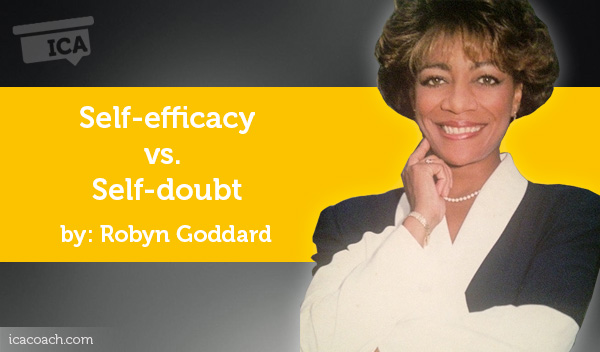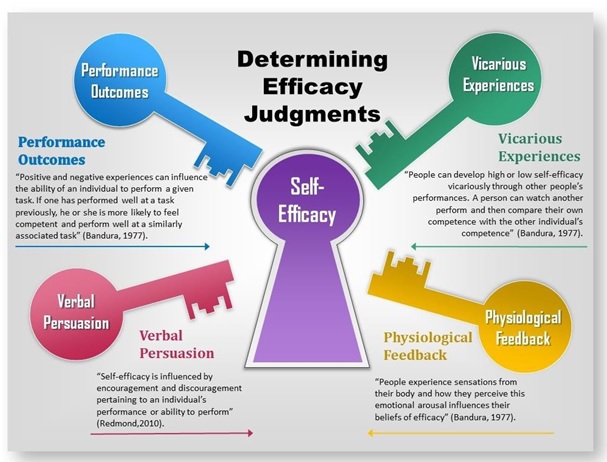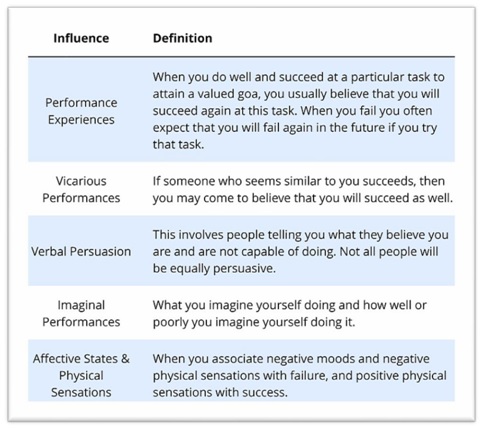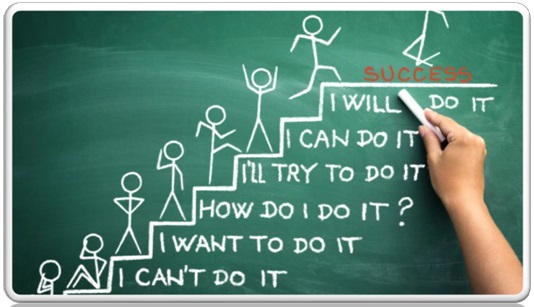
A Coaching Power Tool Created by Robyn Goddard
(Life Coach, UNITED STATES)

Self-efficacy is a concept most commonly popularized by psychologist Albert Bandura, lying at the centre of his social cognitive theory. Bandura described this trait as “one’s ability to succeed in specific situations or accomplish a task.”
Self-efficacy, not to be confused with self-esteem (a person’s sense of self-worth), is a trait developed from both “external experiences and self-perception” which has been described as playing a vital role in how individuals approach “goals, tasks, and challenges” throughout their lifetime.
Self-efficacy affects our everyday choices in life, our levels of motivation, our thought patterns and responses, our health behaviours and our work performance. As a result, it also can heavily impact everything from our generalized view of the world around us as well as our interpersonal relationships.
Self-efficacy also has a significant influence on research and clinical practice within the field of psychology and has been applied to many forms of behaviours such as:
Individuals who possess high levels of self-efficacy are scientifically proven to have a higher likelihood of success in life when sufficient effort is exerted and well-executed. In contrast, those who experience low levels of self-efficacy, and thus, higher levels of self-doubt are much more likely to “cease effort early and fail”.
Doubt kills more dreams than failure ever will.
Why is self-efficacy vs. self-doubt an effective power tool?

Source
From my personal experience self-efficacy is the number one thing that gets in the way of clients’ abilities to achieve the goals they set for themselves. As a result, I believe it is the single most important power tool that can be used in order to make a difference with coaching efforts.
If I could shift the thinking or beliefs of every client I coached in just ONE way, it would be to put them in a mindset where they truly believe they are capable of achieving anything which they desire in life. Many times as individuals we think too small and are much more afraid of growth and change than we are of settling in life.
My job as a life coach is to help push clients to the next step in their lives – to help thrust them onto a journey of success and to help them realize their best selves. I believe that by simply reframing a client’s perspective on their personal capabilities and self-efficacy, you can fundamentally and profoundly impact them and their lives.
Sources
Bandura, Albert (1982). “Self-efficacy mechanism in human agency”. American Psychologist. 37 (2): 122– 147. doi:10.1037/0003-066X.37.2.122
Stajkovic, A. D. & Luthans, F. (1998). “Self-efficacy and work-related performance: A meta-analysis”. Psychological Bulletin. 2: 240–261.